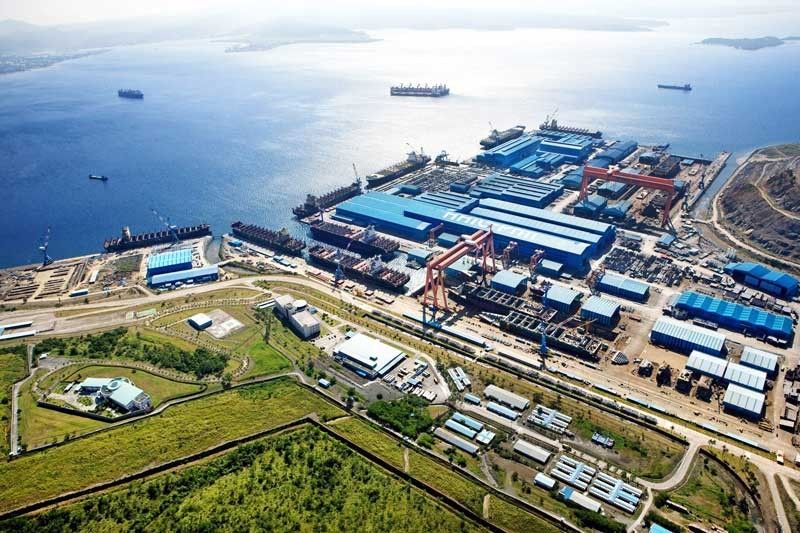BSP: 5 big banks ‘taking actions collectively’ after $412-M Hanjin default

MANILA, Philippines — Five of the country’s biggest banks are taking “collective” action to cover $412 million in combined loans extended to the Philippine unit of South Korean shipbuilder Hanjin, according to the central bank, dousing concerns over what could be the biggest corporate default in history.
“Yes, actually we’re already aware of this. We’re monitoring and, in fact, there’s no cause for worry,” Bangko Sentral ng Pilipinas Deputy Governor Chuchi Fonacier said in an interview with ANC.
Hanjin Heavy Industries and Construction Philippines early this week filed for court rehabilitation proceedings as it struggles to pay its multimillion-dollar outstanding loans from Philippine banks. Most of the money was reportedly lent without collateral protection.
The five Philippine banks that lent money to Hanjin were Rizal Commercial Banking Corp.; Land Bank of the Philippines; Metropolitan Bank and Trust Co.; Bank of the Philippine Islands, and Banco de Oro Universal Bank, the Philippine Daily Inquirer reported Friday.
This is on top of another $900 million in debts the ship builder owed to South Korea lenders, reports say,
Fonacier said the default was “no cause for worry,” adding that Hanjin’s debts only account for 0.24 percent of the total gross loans of the Philippine banking system, and 2.48 percent of foreign currency loans granted by local lenders.
“So it’s not really something that may create a systemic or whatever impact on the Philippine banking system,” the central bank official said.
The Inquirer reported that the involved banks have agreed that no one will unilaterally seize the shipbuilding giant’s assets to protect the country’s banking system and economy.
“So that’s correct, that’s actually the move that they’ve taken. They will be taking actions collectively as a group of creditors,” Fonacier said.
“In fact, for each of those banks, they have also taken actions to protect their positions and exposures and we have also assessed that it will not have an impact as well on the capital on each of those banks,” she also said, noting that the banks exposed are “very well capitalized.” — Ian Nicolas Cigaral
- Latest
- Trending


























